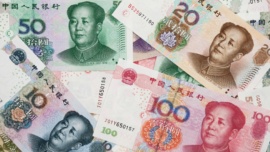When you have the worlds gaming mecca with 30 million tourists per year visiting from all over the world but a local currency thats only accepted here, what do you need? A unified and global currency. Thats what could make Macau and the virtual crypto currency Bitcoin made for each other, says Bobby Lee, the founder of Chinas biggest Bitcoin exchange, BTC China. According to him, Bitcoin has the potential to grow in Macau, especially in the gaming industry. In China, Bitcoin business is booming, with Mainlanders some of the worlds hardcore fans of the virtual currency. And Chinese are, by far, the largest group of visitors (and gamblers) to Macau, with a share of 70 per cent, official data says.
“Bitcoin can enable travellers to Macau, especially for the gaming industry, move their funds no matter the country theyre from, Mr. Lee told Business Daily. Macau is an international destination for gaming in Asia but the local currency is not widely recognised outside the city. The Hong Kong dollar has much greater influence than the pataca.
Almost famous On the sidelines of a France Macau Business Association (FMBA) event where Mr. Lee was the keynote speaker in a session titled: Will Bitcoin revolutionize the world? Mr. Lee said that Chinese gamblers can come to Macau and bring the Bitcoins, having exchanged them in China, through companies like BTC China.
The founder of the largest Bitcoin exchange company in China said it didnt have any figures on how many bitcoins are used these days to gamble in Macau casinos. We sell Bitcoins to people but we dont know how they use them. If to gamble in Macau, or to buy computers.
But one thing is certain. The virtual currency is expanding fast in China. Bitcoin is very popular in China and its growing, emphasises Mr. Lee. Chinese are really into new things, and people are excited about the digital revolution. Bitcoin, because of its volatility, provides a way for people to make a profit and speculate. Today, there are around a million Bitcoin users around the world, says Lee, with most of them Chinese.
But Mr. Lee admits that Bitcoin, created only six years ago, still has a long way to go from a current niche currency to global acceptance.
First, because its complicated to understand by the man in the street, and second, due to the several scams that have made headlines in the last few months. Bitcoin is a niche market today because people dont understand it. Until more people understand it, its not going to be a wider option, he concedes.
Regarding the scams, the founder of BTC China says the problem is not entirely in the Bitcoin itself. The scams are basically business scams, people trying to steal other peoples assets, like in the real estate scams, stock market scams. If a scammer convinces you to buy property in Hainan Island and the market goes bust whos to blame? The scam. Not Hainan or the property, Mr. Lee says.
Easy target But he adds that Bitcoin is an easy target for scams because the currency is pretty much like cash because when you have it, you can spend it . . . If a thief tries to steal your wallet the first thing hell do is to take the cash, not the credit cards because the latter can be stopped and cancelled. Also, the complex nature of Bitcoin invites reports on scams to focus on Bitcoin as the problem and not on the scam itself, he maintains.
Bobby Lee says BTC China is trying to make Bitcoin easier for the public and that new things need time. Think about email. It started to be used in the late nineties but it was invented ten years before. The early adopters of email were the hardcore computer scientists. It took ten years for everyone to start using it. The people who use Bitcoins today are the real hardcore fans. In five to ten years, Bitcoin could become more mainstream, Lee says.
Bitcoin is a consensus network that enables a new payment system via completely digital money. Developed in 2009, it is currency created for the connected world and its open-source, decentralised and not controlled by governments or central banks. Payment like Bitcoin is the last frontier of the digital revolution after music, video or photography, the BTC China founder said.
























